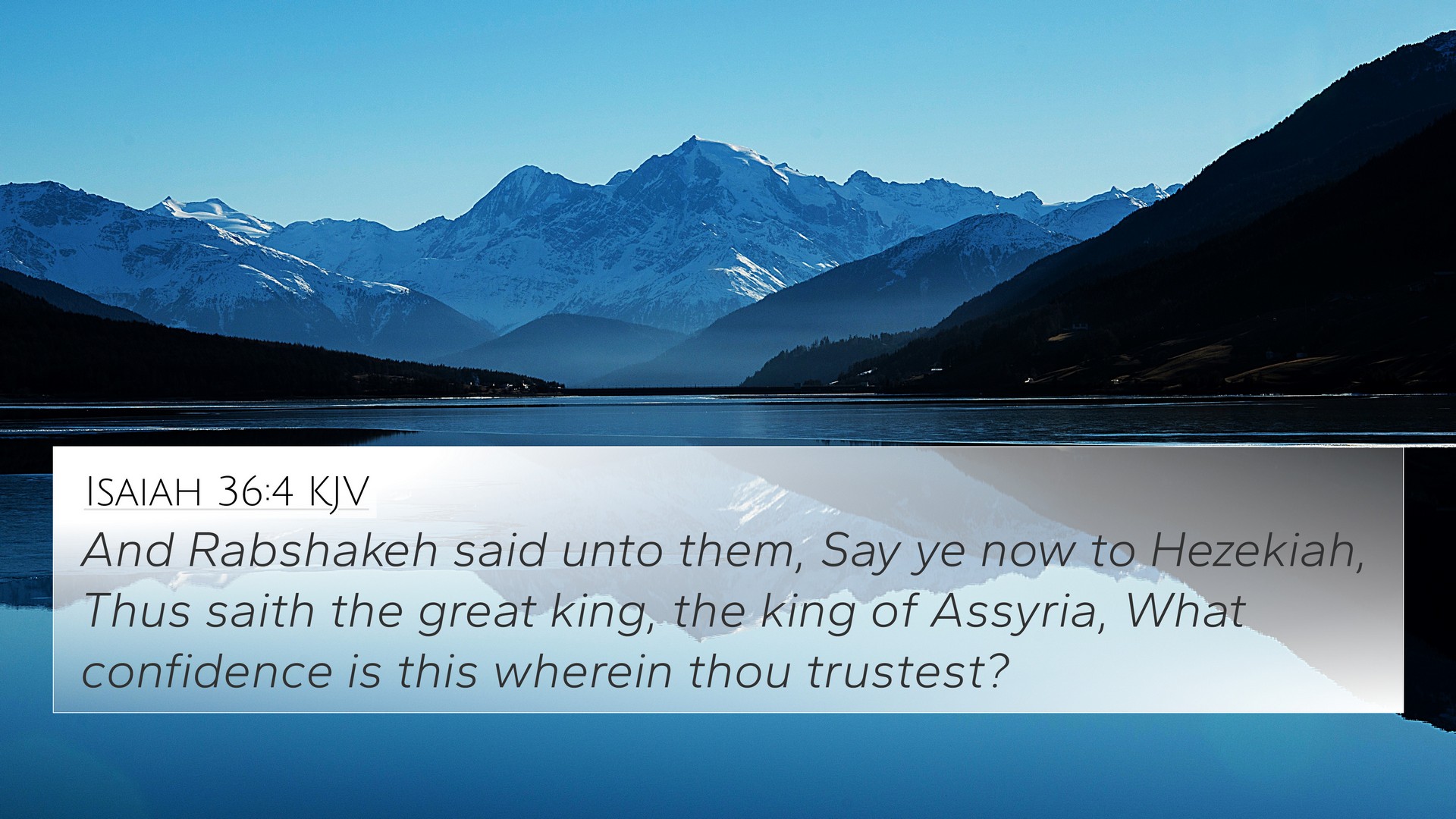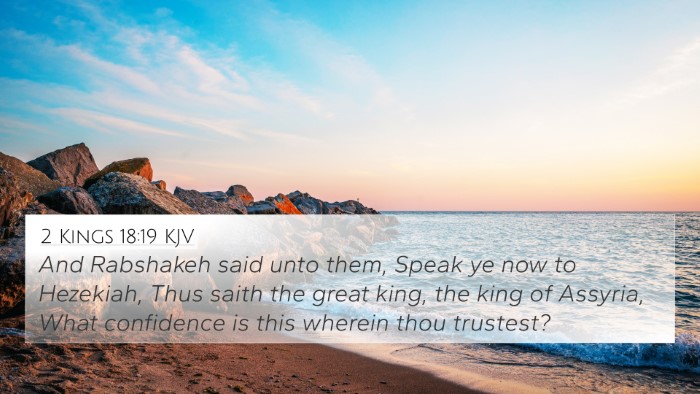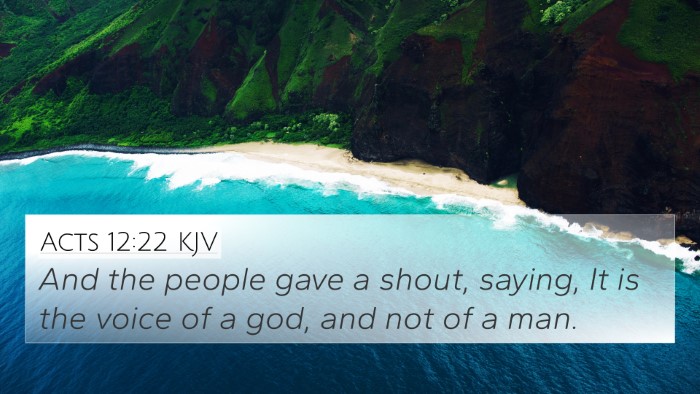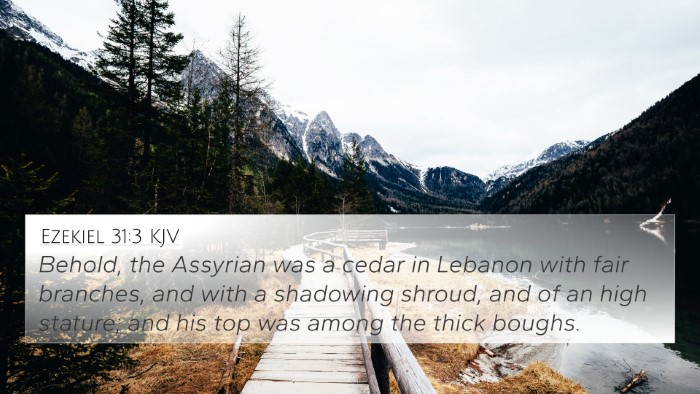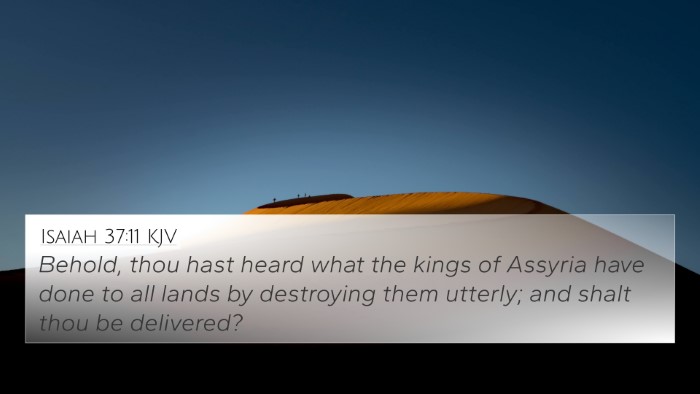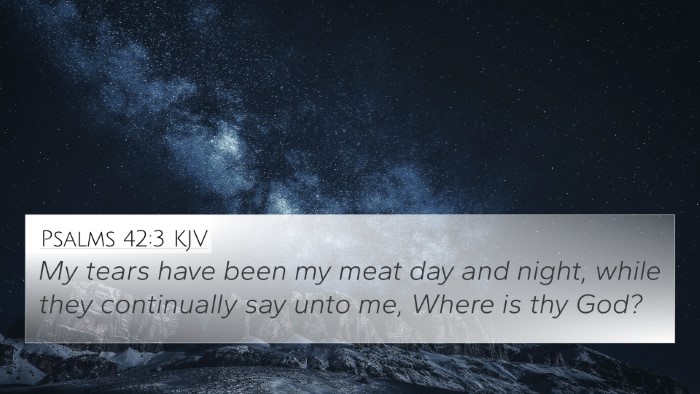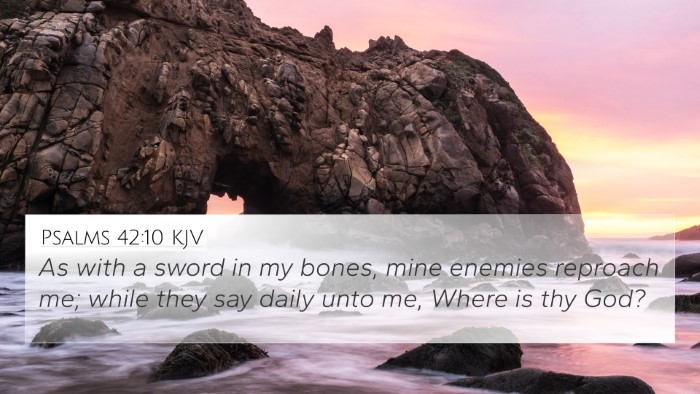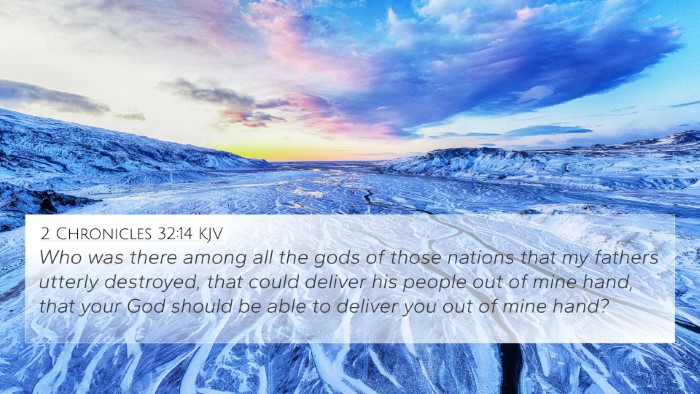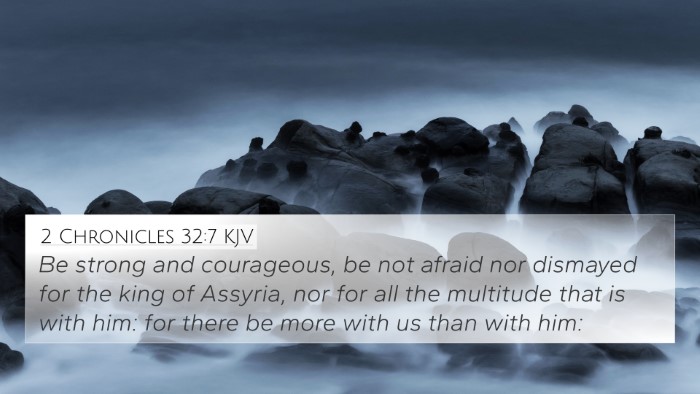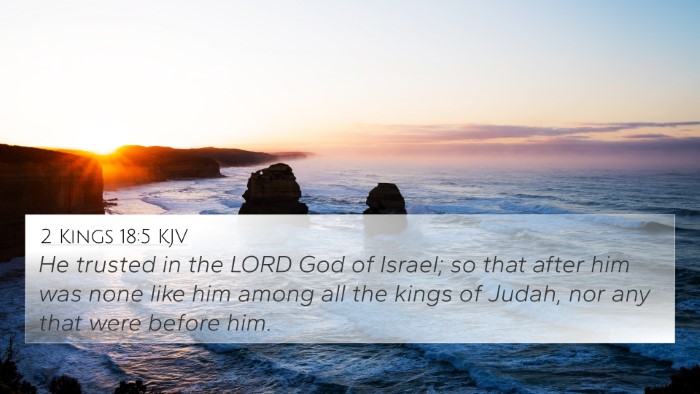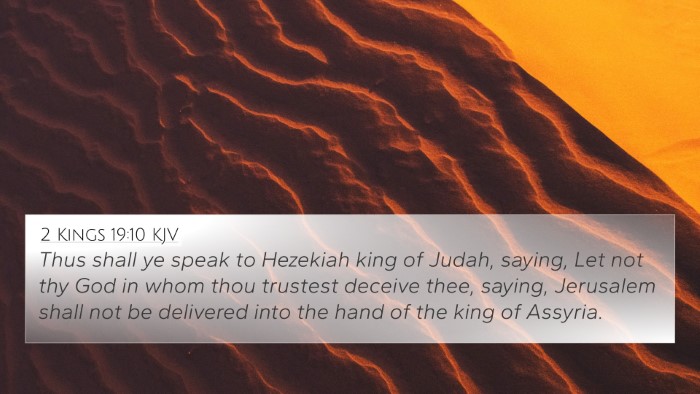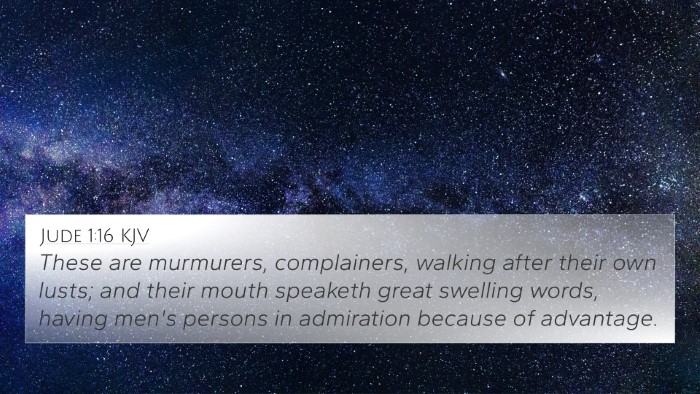Understanding Isaiah 36:4
Isaiah 36:4 states: "And Rabshakeh said unto them, Say ye now to Hezekiah, Thus saith the great king, the king of Assyria, What confidence is this wherein thou trustest?" This verse conveys an important moment during the Assyrian siege of Jerusalem, reflecting themes of trust and reliance on God versus human authority.
Contextual Analysis
In the historical context of Isaiah, the Israelites faced a significant threat from the Assyrian Empire. Rabshakeh, serving as a representative of King Sennacherib, questions the faith and hope of King Hezekiah and the people of Judah. This moment underscores critical aspects of faith during adversity.
Thematic Connections
This verse connects deeply with several themes in the Bible:
- Trust in God: This theme is prevalent throughout scripture, showcasing how reliance on divine strength outshines any earthly power.
- The Power of Prayer: Hezekiah's response to Rabshakeh emphasizes the necessity of turning to God in times of crisis.
- Divine Deliverance: Historical instances of God saving His people from seemingly insurmountable odds are chronicled throughout both Old and New Testaments.
Commentary Insights
Matthew Henry's Commentary: Henry emphasizes the blasphemous nature of Rabshakeh's challenge, noting how he seeks to instill fear in the people by undermining their faith in God. He highlights the need for steadfastness against taunts and the importance of maintaining faith in God during trials.
Albert Barnes' Notes: Barnes provides an analysis of the confidence expressed by Hezekiah, contrasting it with the false confidence that may arise from alliances with external powers. He cautions readers against misplaced trust and encourages a reliance on God's promises.
Adam Clarke's Commentary: Clarke delves into the implications of Rabshakeh's words, portraying them as a strategic psychological attack meant to challenge the resolve of the Judahites. He points to this as a critical moment where faith must prevail against doubt.
Bible Cross-References
This verse relates to several other passages that explore similar themes and concepts:
- 2 Kings 18:19-20: Rabshakeh’s questioning of Hezekiah’s trust parallels Isaiah 36:4, showcasing the confrontation between Assyrian might and Judean faith.
- Isaiah 10:27: Highlighting the yoke of oppression, this verse forecasts deliverance from foreign adversaries, reinforcing the hope held by Hezekiah's people.
- Psalms 46:1: "God is our refuge and strength", relates directly to the need for divine support when facing overwhelming odds.
- Proverbs 3:5-6: Encourages trust in the Lord, signifying the contrasts between human wisdom and divine guidance.
- Isaiah 37:14-15: Here Hezekiah turns to God in prayer, further illustrating the theme of seeking divine intervention during crises.
- Jeremiah 17:5: Warns about the man who trusts in man, stressing reliance on God over human powers.
- Philippians 4:6-7: In the New Testament, the message of not being anxious but praying for God’s peace aligns with the call for faith seen in Isaiah 36.
Conclusion
The dialogue presented in Isaiah 36:4 is a profound reminder of the spiritual warfare that believers face, especially during challenging times. The verse illustrates the contrasts between faith and doubt, divine power and human persuasion. Through historical and thematic connection, it encourages modern readers to trust unwaveringly in God's sovereignty.
Final Thoughts
As we reflect on Isaiah 36:4, consider personal applications of faith under pressure. Evaluate how this verse intersects with your own life, and explore the tools for Bible cross-referencing to deepen your understanding of Biblical texts.
